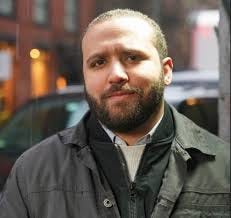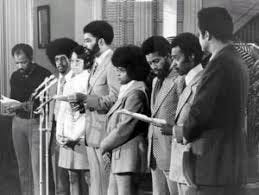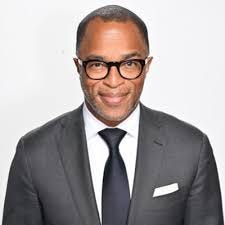The Washington Post Says It Don’t Hurt Now. Don’t Believe It.
The Watchdog Is Crying in the Dark, Pretending It Ain’t.
Let me ask you a question.
And I need you to be real with me for a second, no not cable news real, real real.
When was the last time you trusted The Washington Post?
No, not clicked.
Not skimmed.
Not rage-shared a headline on Twitter like “Can you believe this shit?”
I mean trusted it. Like you trusted it to stand between you and power.
Trusted it to tell the truth, even when the truth had bad manners.
Trusted it to bite, not beg.
…Been a minute, huh?
Now here’s the wild part:
They know.
The Post knows. It knows it lost you.
It knows it traded its backbone for boardroom optics and Bezos memos.
And now it’s out here, doing the media equivalent of Teddy Pendergrass in a dark studio trying to sing “It Don’t Hurt Now” through clenched teeth while the tears are still fresh on the mixing board.
You’ve heard the song.
You know the trick.
That’s not a man who moved on.
That’s a man who still sleeps on her side of the bed out of habit.
And that’s The Washington Post in 2025.
Still printing Democracy Dies in Darkness on the front page like it means it.
Still acting like it’s Watergate-era royalty while quietly muting dissent, dodging endorsements, and running PR fluff for billionaires and abusers.
But here’s where it gets worse.
You’re the one it’s gaslighting.
Because the betrayal ain’t just editorial. It’s emotional.
The Post wasn’t just a newspaper….it was a relationship.
And now it’s looking you dead in the eye and saying,
“What? I’m still the same. I still believe in truth.”
Except the truth don’t live here no more.
It sublet that space to compromise.
So before you tell me “it don’t hurt now,”
before you start acting all healed and unbothered with your NPR rebound and your Guardian side-chick…
Let’s take one last ride.
We’re gonna walk through how the Post lost its voice, who made it shut up,
and what it’s whispering now when it thinks nobody’s listening.
And I’m telling you right now:
It still hurts.
Even if the song says it don’t.
How The Hell Did We Get Here? (A Timeline of Power, Pivoting & PR)
Let’s rewind not just to make sense of what the Post has become, but to remember what it used to be. Because if you’re gonna understand the breakup, you’ve got to remember the love story.
🕰️
Act I: When The Post Had a Spine Made of Ink and Steel (1970s)
Back in the day, The Washington Post was the kind of paper that literally had the righteous power to unplug presidents.
Under publisher Katharine Graham and editor Ben Bradlee, they ran headfirst into the Nixon White House like,
“Oh, you thought we were scared of subpoenas? Try us.”
They published the Pentagon Papers.
That was the government’s “We’ve been lying to y’all about Vietnam for decades” receipt. A top-secret document showing the U.S. knew the war was unwinnable but kept sending poor kids to die anyway. And the Post said, “Yeah, we’ll take that heat.” Risked jail. Risked being shut down. Why? Because back then, telling the truth—even when it embarrassed the empire—was the whole damn job.
They exposed Watergate.
Watergate was supposed to be some low-rent break-in…just a couple dudes caught sneaking into DNC headquarters. But the Post followed the money, followed the lies, and cracked open a full-blown criminal conspiracy run out of the White House. Wiretaps, hush money, cover-ups….the whole thing. And instead of backing down, the Post kept pressing until Nixon had no choice but to resign. That was a newspaper putting the Constitution on its back and walking it through fire.
The Watergate revelations turned two beat reporters, Woodward and Bernstein, into household names and one deeply paranoid President into history’s most famous resignation letter.
This was way more than just journalism. This was a moral event.
The Post earned a rep as the nation’s watchdog—the kind that barks at power, not fetches for it.
That’s the legacy they still try to flex with slogans like “Without fear or favor.”
Cute.
💼
Act II: Enter Bezos (The Billionaire Era Begins)
Fast-forward to 2013. The newspaper business is bleeding out, Craigslist already mugged the classifieds, and ad revenue’s on life support.
That’s when Jeff Bezos, a man who can buy your company on a Tuesday and forget he owns it by Friday, swoops in and buys The Washington Post for $250 million….pocket change between space launches.
Now, to be fair, the first few years? Not terrible.
Bezos said, “Hands off, y’all. I’m just here to help.”
He installed Marty Baron as editor (a real one), who kept the investigative engine running.
The Post won Pulitzers. Digital traffic soared. They dropped that moody slogan—“Democracy Dies in Darkness”—like a Batman tagline on the homepage, and for a moment, it felt like the old Post had found new life.
But power’s funny like that.
At first, it’s just a seat at the table.
Next thing you know, it’s rewriting the menu.
⚖️
Act III: Mission Drift and the Billionaire Bible Rewrite (2021–2025)
Then Baron retires.
Bezos brings in Sally Buzbee which was a historic hire, first woman to lead the newsroom. But the vibe’s already shifting.
Shortly after, Fred Ryan (publisher since the Bezos takeover) exits stage right, and here comes Will Lewis, a former Murdoch guy, with Wall Street Journal sauce still on his jacket. Bezos gives him the keys.
By 2024, the Post does something it hadn’t done in nearly 50 years:
No presidential endorsement.
Not for Biden.
Not for Harris.
Not for anybody.
The official line? “We’re just going back to our roots.”
The real message?
“We’re scared of Trump’s base, and we don’t want smoke.”
Even Marty Baron, who had kept it classy for years, broke his silence like,
“This ain’t neutrality. This is cowardice.”
And if that wasn’t enough, February 2025 dropped the real bomb:
Bezos told the opinion section to only defend two things from now on:
🟢 “Personal liberties” and
🟢 “Free markets.”
Everything else?
Take it somewhere else.
Like, literally, publish it at Vox.
This wasn’t just a tweak in tone no this was a philosophical reprogramming.
The Post, once known for publishing a symphony of dissent, now had a two-note song:
Libertarian-lite…with a billionaire beat.
🚪
Who Walked Out—and Why It Matters
People weren’t quiet about this shift.
Editorial page editor David Shipley quit rather than pretend this was normal.
Senior editor Cameron Barr, who’d been at the Post since the Clinton era, dipped too, calling Bezos’s directive “an unacceptable erosion” of editorial independence.
And those words? Democracy Dies in Darkness?
Still printed on page one.
Still glowing like a streetlamp outside a house that’s been foreclosed from the inside.
🧠 So What’s the Big Picture?
Look at the pattern:
📰 1970s: The Post was David with a printing press.
💼 2013–2017: Bezos played the role of benevolent funder.
⚖️ 2021–2025: The “hands-off” billionaire put his whole thumb on the editorial scale.
He didn’t just buy the watchdog.
He taught it to whisper.
And not for nothing, but when the richest man on Earth tells your newspaper to stop publishing viewpoints that challenge free markets, that ain’t just bias.
That’s a conflict of species.
When the Color Drains Out the Newsroom
Okay, now we gotta talk about what happened when the bylines started disappearing….and not just any bylines.
Black and brown staff started leaving The Washington Post like the building was on fire and somebody locked the elevators.
And look, I’m gonna try real hard to keep this professional, but let me just say this up front:
You can’t talk about editorial integrity, justice, and democracy… and then start treating your own Black staff like spare chairs.
Let’s get into it.
📉 The Math Don’t Math
In 2020, Black journalists made up about 9 percent of the Post’s Guild-eligible newsroom.
Now guess what percentage of the departures they made up that same year?
Over 33 percent.
That’s right. One out of every three people walking out the door was Black while only one out of every eleven people inside was.
That’s not attrition.
That’s an exodus.
And don’t hit me with the “oh, well maybe it was a coincidence” line. Puh-lease. This ain’t Sudoku. It’s survival.
🗂️ History Repeats… If You Ignore the Memos
And this ain’t new, either.
Back in 1972, a group called the Metro Seven, Black journalists inside the Post, filed an EEOC complaint about discriminatory assignments and being iced out of real opportunities.
And what did Editor Ben Bradlee say?
“Vague and totally unacceptable.”
Sound familiar?
Fast forward 50 years, and folks are still getting boxed into the same beats: crime, culture, “urban affairs.” You know—the Black stuff.
And when they ask for more? Suddenly they’re “not a good fit.”
It’s like getting invited to the table and being told you can only eat from the kids’ menu.
🚪 The Names Who Left, and What It Cost
You ever seen a staff roster turn into a ghost town?
Between 2022 and 2024, here’s just a few of the heavy-hitters who dipped:
Jonathan Capehart – opinion columnist, Pulitzer winner, last Black person on the editorial board. When he left? That board was whiter than a Whole Foods cheese aisle.
Krissah Thompson – first Black managing editor. Gone.
Kevin Merida, Vanessa Williams, Wesley Lowery—journalists who brought weight, truth, and receipts to the newsroom. All bounced.



You don’t lose that many voices of color by accident.
That’s not drift. That’s a dam break.
💭 Why This Ain’t Just an HR Problem
Let me break this down slow:
When your newsroom stops looking like the city it covers,
when the only folks left writing the truth are the ones comfortable enough to sip it through a bendy straw….
you don’t just lose staff. You lose vision.
And if you lose that?
You can’t cover policing, reproductive justice, AI bias, climate apartheid, or economic racism with anything but a press release and a hope.
You can’t see what you ain’t willing to hire.
And for the record when these journalists left, they didn’t say “I’m tired.”
They said, “I’m done being undermined, underpaid, and underacknowledged.”
Which, let’s be honest, is corporate for “Y’all gon’ make me act up in here.”
🎓 Final Word Before I Really Say What I Want to Say
Look, I get it. Papers are struggling. Budgets are tight. And Jeff Bezos wants ROI, not DEI.
But if The Washington Post wants to keep quoting Democracy Dies in Darkness like it’s scripture,
they might want to start by stopping the blackout in their own newsroom.
Because when Black and brown journalists leave, they don’t just take their talent.
They take the ability to ask better questions.
And right now?
There’s some powerful folks out here praying those questions never get asked again.
So What’s the Big Picture?
Look at the pattern:
📰 1970s: The Post was David with a printing press.
💼 2013–2017: Bezos played the role of benevolent funder.
⚖️ 2021–2025: The “hands-off” billionaire put his whole thumb on the editorial scale.
He didn’t just buy the watchdog.
He taught it to whisper.
And not for nothing, but when the richest man on Earth tells your newspaper to stop publishing viewpoints that challenge free markets that’s a conflict of species.
From Nixon to Maxwell: When the Post Stopped Throwing Punches and Started Pulling Them
Let’s get this out the way early:
Watergate wasn’t a scoop. It was a siege.
The Washington Post didn’t just break a story no they broke a presidency.
Day after day. Brick by brick. Lie by lie.
And they did it without social media, without cable news spin cycles, and without billionaires funding them like it was a tax write-off.
Just a few reporters, a deep throat, and a newsroom that didn’t flinch when the White House tried to come for their necks.
So when folks talk about The Post like it’s always been this,
let me stop you right there.
Because the Post that helped run Nixon out of town?
That paper would’ve treated someone like Ghislaine Maxwell like a burning building—with reporters crawling under the floorboards and peeling back the drywall looking for bodies.
Instead?
We got access journalism with a gloss finish.
📜 Then: The Post as a Wrecking Ball
Here’s what Watergate-era coverage looked like:
• They chased leads nobody else touched.
• They printed stories that risked court orders, advertisers, and friendships.
• And they didn’t care whose feelings got hurt.
President, attorney general, the dog walker—they all got it the same.
They weren’t trying to be “first.”
They were trying to be right—and they were willing to take as long as it took to prove it.
And what happened?
Nixon resigned.
The country got better.
And the Post became legend.
That was the blueprint.
Now: The Post as a Gloved Hand
Then you fast-forward to Jeffrey Epstein and Ghislaine Maxwell—arguably the biggest power-and-pedophilia scandal in modern history and the Post suddenly got… polite.
Let’s be clear:
The Miami Herald, not the Post, cracked that case back open.
It wasn’t Woodward and Bernstein….it was Julie Brown down in Florida digging through court files while the big papers were napping.
Once the feds arrested Epstein (again), then the Post showed up.
And when Maxwell got dragged into court?
They covered it like it was a PTA meeting.
You’d think she stole a pack of gum at Whole Foods the way some of those headlines read.
Not “Global Elite Sex Trafficking Ring Busted.”
Not “Names Still Hidden. Survivors Still Waiting.”
Nah. We got:
“Why Does Everyone Want to Talk to Ghislaine Maxwell?
Are you f****** kidding me?
The Shift: From Accountability to Optics
Here’s the move that’s been happening in plain sight:
• Back then, the Post chased the story—even if it made the Pentagon or the President uncomfortable.
• Now, the Post frames the story—to make sure it doesn’t make the wrong billionaire nervous.
Take this for example:
During the Watergate era, the Post didn’t stop reporting until the highest offices in the country were under investigation.
But with Epstein and Maxwell?
Nobody from their client list got spotlighted.
Nobody from the finance sector.
Not one royal.
Not one tech bro.
Nobody with a foundation or a Gulfstream or a $30 million Hamptons compound had their name splashed across A1.
And you mean to tell me that was a coincidence?
Come on, man.
The Difference Ain’t Just the Coverage. It’s the Courage.
Look—reporting on Epstein post-2019 was easy. Dude was dead.
Covering Maxwell’s trial? That’s procedure.
But where were the Post’s investigative muscles when it came time to connect the dots?
• Where’s the follow-the-money series?
• Where’s the who enabled her breakdown?
• Where’s the pressure campaign to release the damn flight logs?
I’ll tell you where.
Missing.
Like the three minutes of prison footage from Epstein’s cell.
(And shout out to Wired Magazine for discovering the feds spliced that video like it was TikTok. Wired did that. Not the Post.)
From Fire to Freeze-Out
And don’t get it twisted—this ain’t just about Epstein.
It’s about a pattern.
Whenever the story touches real elite networks, you know, the kind where funders, founders, and former presidents show up…the Post starts looking like it’s stuck in a staring contest with its own shadow.
Ask yourself this:
• If Epstein had been taking meetings at Amazon HQ instead of Mar-a-Lago, would the coverage look any different?
• If the trail led to someone on Bezos’s yacht instead of Trump’s golf course, would the Post have been this restrained?
You don’t have to answer.
The song already has.
“It don’t hurt now…”
Yeah, okay.
The Slogan Still Prints. But the Teeth Got Pulled.
They still run that slogan like a spell:
“Democracy Dies in Darkness.”
But sometimes it’s not darkness.
Sometimes it’s dimmed lighting, strategically adjusted to keep things “respectable.”
And that’s what’s happening now.
The watchdog got house-trained.
Still barks once in a while.
But only at safe targets.
Receipts Don’t Lie: Watergate vs. Maxwell, Trump, and the Billionaire Protection Program
The problem isn’t just what The Washington Post covers.
It’s how it covers power and more importantly, which power it tucks in at night.
So let’s run the numbers.
Because the Post’s editorial soul didn’t vanish all at once.
It bled out, case by case, scandal by scandal, until all that was left was branding.
Let’s line ’em up.
Then: Watergate – Journalism With Brass Knuckles
You already know the story.
Watergate wasn’t supposed to be a big deal. Just a break-in at the DNC.
But the Post smelled smoke—and didn’t stop until they found the whole damn fire.
• They connected dots the FBI hadn’t touched.
• They burned sources who lied.
• They followed money like bloodhounds in a crime novel.
• And they did it without knowing it would take down a president.
This wasn’t about clicks.
This was about consequences.
And the message was clear:
“If you lie to the people, we’ll find you. And we’ll print your name in 72-point bold.”
Now contrast that with…
Now: Ghislaine Maxwell – Journalism With Oven Mitts
We’re talking about an international sex trafficking operation run out of private jets and penthouses, involving underage girls and powerful men who partied with presidents and royalty.
That’s not just a scandal.
That’s a franchise.
But how did the Post cover it?
• No longform on how Epstein made his money.
• No pressure campaign to release the flight logs.
• No crusade to dig through the rubble of who else knew.
Instead, we got headlines like:
“Why Does Everyone Want to Talk to Ghislaine Maxwell?”
Man, what?!
This is how you cover someone who ran logistics for a sex ring, not a celebrity chef.
Even when Maxwell offered to name names to reduce her sentence, the Post didn’t flood the zone.
They just nodded from across the courtroom and shuffled back to the metro desk.
And let’s be real—if this had been 1974?
Ben Bradlee would’ve told Woodward:
“Don’t come back without a name. Or a warrant.”
Trump: When the Watchdog Got Real Quiet
To the Post’s credit, they did go at Trump hard during his first run:
• They dropped the Access Hollywood tape.
• They tracked over 30,000 lies across his presidency.
• They published op-eds that straight up called him a threat to democracy.
But as soon as 2024 rolled around and Trump looked like he might actually win again?
The whole building got quiet like somebody just walked in with a gun.
No endorsement.
No fire.
Just vibes.
You had Bezos in the back room like:
“Let’s not provoke him, okay? We’ve got AWS contracts and Whole Foods stock to think about.”
And that’s when the Post went from watchdog to emotional support animal—obedient, presentable, and trained not to bark too loud.
Khashoggi: When The Paper Remembered Who It Was (Briefly)
Now let’s give flowers where due.
When Saudi agents butchered Jamal Khashoggi, a Washington Post contributor, the paper didn’t play nice.
• They ran his final column with an empty space next to it.
• They dragged MBS in print.
• Bezos himself called out Saudi intimidation.
For a moment, the Post remembered its Watergate-era spine.
But that moment passed.
Once Biden fist-bumped MBS and the rest of the world moved on?
The Post moved on too.
No follow-ups.
No special series on “what the Saudis bought with their silence.”
Just another funeral on the opinion page.
The Unnamed Elite: When Silence Protects More Than Power
Ask yourself this:
How many names got printed from Epstein’s inner circle?
We got Maxwell.
We got Epstein (after he “committed suicide” with broken cameras and guards asleep).
But the clients?
The ones who used those girls?
They vanished into footnotes.
Still at Davos.
Still dropping NFTs and keynote speeches.
Still untouchable.
And the Post?
Silent.
Polished.
Respectable.
“Democracy Dies in Darkness.”
You mean the kind of darkness where you redact the names before the ink even dries?
Summary: A Shift from Exposure to Containment
Back then:
Expose the rot, no matter how high it goes.
Now:
Contain the scandal. Minimize collateral damage. Protect the donors, advertisers, and political capital.
That’s not journalism.
That’s crisis management with a byline.
Other Elite Treatments – Patterns of Deference (a.k.a. How to Say “Yes, Sir” in Journalism Without Saying “Yes, Sir”)
Let’s not act brand new.
The Ghislaine Maxwell coverage wasn’t a fluke.
The Trump tapering wasn’t a one-time wobble.
What we’re seeing is a pattern…a soft, brushed-steel silence that shows up whenever the people with the real money, real muscle, or real phone numbers get involved.
Let’s break it down like an after-hours grad seminar with whiskey in the coffee.
Billionaires Don’t Get Investigated. They Get Profiled.
Back in the day, if a CEO blinked funny during a congressional hearing, the Post would have three reporters and a graphic designer on that story by sundown.
Now?
If you’re a billionaire with clean branding and tech bro swagger, you’re more likely to get a glowing lifestyle feature than a forensic audit of your sins.
We’ve seen it with:
Elon Musk, who damn near did a Nazi salute on stage and got described in the Post as giving an “awkward gesture.”
Jeff Bezos, whose Amazon labor abuses get covered, sure but always like a polite throat-clearing in the business section, not a moral scandal.
The watchdog isn’t barking at these folks.
It’s holding their leashes in one hand and its résumé in the other.
The Post Still Has Smoke—But Only for Safe Targets
Let’s be real: the Post can still throw punches.
But check the aim:
Republican grifters? Sure.
State-level buffoonery? Absolutely.
MAGA weirdos in cowboy hats yelling at school boards? 10,000 words by Sunday.
But when the scandal floats up to someone with a Guggenheim membership, a Silicon Valley IPO, or a foundation with the word “Global” in it?
Suddenly it’s all:
“We’ve reached out for comment.”
“Sources close to the situation declined to elaborate.”
“The situation is evolving.”
Which is code for:
“We ain’t touching this until somebody else gives us cover.”
They Speak Fluently in Intelligence Agency
Once upon a time, the Post had legends like Dana Priest and Walter Pincus, digging into black sites, surveillance programs, and secret wars like they had nothing left to lose.
Today?
The Post’s op-ed page is starting to read like a guest blog from the CIA alumni association.
We’re seeing more and more former intel officials penning “explainer” columns.
And sure, those voices have value.
But when’s the last time anyone from the anti-surveillance, anti-war, anti-corporate side got equal space?
Spoiler: not recently. And definitely not after Bezos dropped his “free markets and personal liberty only” memo.
In fact, when the Post’s own Editorial Page Editor David Shipley said,
“Hey, shouldn’t we still be publishing a range of ideas?”
Bezos basically told him:
“Go be balanced somewhere else.”
So he quit.
If the Scandal Touches the Wine Cellar, It Disappears
The pattern isn’t just political. It’s cultural.
If a tech mogul’s name shows up on Epstein’s flight log? Quiet.
If a hedge fund darling bankrolls a think tank that pushes voter suppression laws? Page B14, if that.
If a foundation tied to the owner of the paper is doing backroom lobbying in DC? That story magically becomes “not fully confirmed.”
You see the formula?
When scandal threatens to breach the tier where Post leadership eats, the coverage slows down, softens, or slips into silence.
Silence Ain’t Neutral. It’s Protection.
Here’s the big reveal:
The Post doesn’t always defend the elite explicitly.
No. It does something slicker.
It just doesn’t ask the question.
It doesn’t follow the lead.
It lets time kill the outrage.
That’s not journalism. That’s elite insulation by omission.
And like the Teddy song says:
“I think I can make it without you.”
That’s what the Post is telling accountability journalism….
“I’m good. I’ve moved on. I’m with ‘free markets’ now.”
But listen close.
There’s a key change.
And it ain’t happy.
Final Thought for This Section:
The Washington Post used to go where the stench was strongest.
Now it seems like it checks the guest list before it knocks on the door.
You can still find real reporters doing good work inside that building but institutionally?
They’ve changed their religion.
They don’t worship truth the way they used to.
They worship discretion.
And discretion, my friend, is just PR with better manners.
“It Don’t Hurt Now” …The Lie Both the Readers and the Post Keep Telling Themselves
Let’s not kid ourselves.
Teddy was lying.
That man was in pain.
You can hear it in the chords, not the chorus.
That’s watcha call grief in falsetto.
He kept saying “It don’t hurt now,”
but his voice was trembling like it still did.
The drums didn’t believe him. The bassline didn’t believe him.
Hell, even the backup singers sound like they’re thinking,
“You sure, bruh?”
And that right there?
That’s the Washington Post in 2025.
And that’s its readers, too.
The Readers: Still Checking the Homepage Like an Ex’s Instagram
Some longtime Post readers walked away mad and fired off a cancellation email, unsubscribed, maybe even posted a righteous comment in all caps.
“NO MORE. I TRUSTED YOU SINCE WATERGATE. WE’RE DONE.”
But if you listen real close?
They’re still peeking.
Still watching from the periphery.
Still hoping lowkey that the Post will come back to its senses like some prestige-TV husband who finally stops cheating on the truth.
And when the Post acts up again dodging another endorsement, platforming another sanitized elite, they get mad because they still care.
You don’t get betrayal without love.
You don’t feel heartbreak unless part of you still believes.
That’s the Teddy energy.
Yelling “I don’t need you!” while the ache is still fresh.
The Post: Performing Strength, Mourning Its Spine
And now flip it.
Because it ain’t just the readers performing.
The Post is out here singing “It don’t hurt now” too.
They’re saying:
“We’re just adapting to a changing media landscape.”
“We’re reaffirming core values: liberty and markets.”
“We’re pivoting toward the future of journalism.”
But you can see it in the shuffle.
In the mass resignations.
In the ghosted traditions and the pale op-eds trying to pretend it’s business as usual.
This ain’t pivot.
It’s self-burial with a smile.
They didn’t just lose their edge.
They lost their reflection.
They keep the slogan….Democracy Dies in Darkness
but the bulb been flickering for years.
They think they’re moving forward.
But they’re limping.
Backwards.
Into the arms of power.
Just like Teddy.
Saying “I found someone new.”
But that man is still crying at red lights.
The Denial is Mutual. That’s What Hurts Most.
This section ain’t about media literacy.
It’s about emotional literacy.
The Washington Post and its most loyal readers are locked in a strange, sorrowful duet
With both of them pretending the breakup was clean, both still humming the old love song under their breath.
One says:
“I can make it without you.”
The other says:
“ There’s no more sleepless nights, no more heartaches no more fights.”
But neither side fully believes it.
Because this ain’t about pixels and paywalls.
It’s about trust, identity, and the loss of something once sacred.
Once, The Washington Post was the paper you handed your kid like a moral inheritance.
Now it’s a brand you scroll past like an awkward text from somebody you used to believe in.
So Say It With Me Now…
“It don’t hurt now…”
Yeah.
It do.
You just learned how to hide it.
So Where Do We Go From Here?
Look—
This ain’t about canceling the Washington Post.
This ain’t even about punishing it.
This is about grieving it.
Giving language to what we lost when one of our fiercest truth-tellers started whispering in favor of the powerful.
And figuring out where the hell to go now that the grown-ups in the newsroom are turning in their press passes and the billionaires are rewriting the lyrics.
And if you’re still reading this?
You feel it too.
That ache.
That tension.
That late-night voice in your chest saying:
“I can’t trust the people I used to trust. But I still need the truth.”
That’s why I’m here.
That’s why this newsletter exists.
That’s why you’re here.
Not because I have all the answers.
But because I’ve still got enough fire left to keep asking the questions…out loud, in public, with my name on it.
If that kind of work matters to you…
if something in you flinched when the Post said “it don’t hurt now”…
if you believe the truth deserves a mic even when the legacy press puts theirs on mute
then I’m asking you to do one of two things:
🟡 Become a paid subscriber—$8 a month to help keep this voice independent, sharp, and unsponsored by tech bros.
That’s it.
That’s the movement.
Small torch. Big shadows.
Because democracy might die in darkness.
But it lives in voices like yours and mine, refusing to let the silence win.








Thank you for covering this. I feel like the America of my youth (Nixon era) is all but wiped away. I keep kicking at it, writing, calling protesting, but it's slipping away. It would be interesting to hear your thoughts on a general strike. (I'm new here so I apologize if you've covered it already.) It seems like the only thing that can make an impact. The only ones who would cover it would be you and MTN. :)